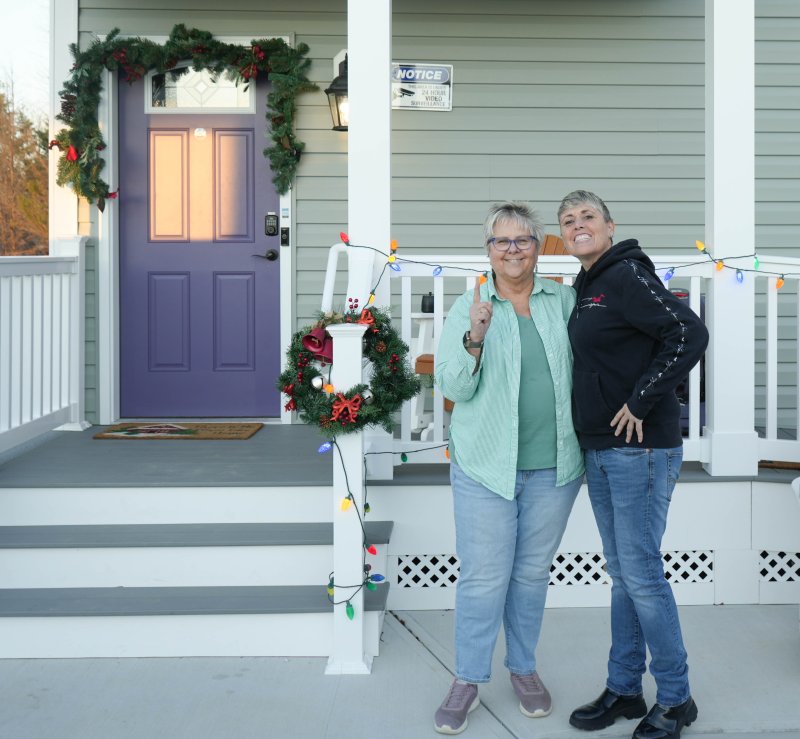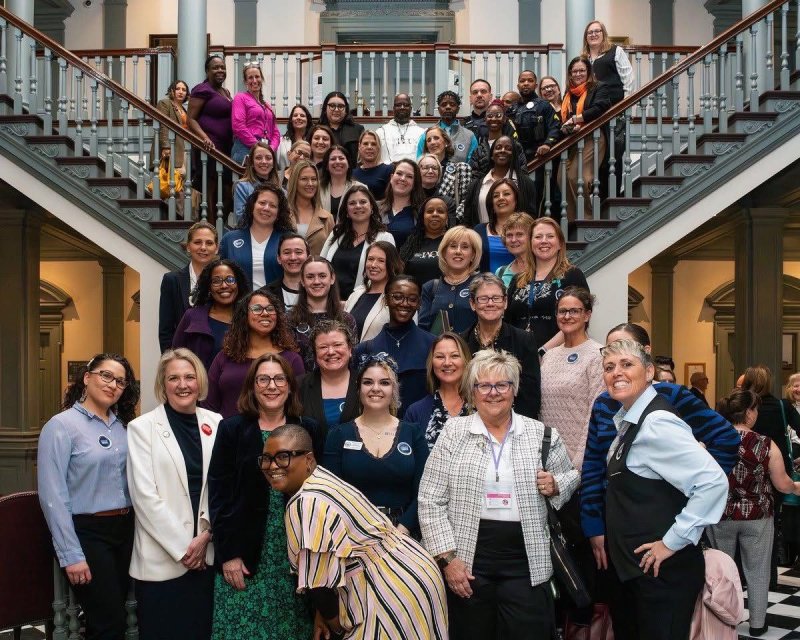Litigation abuse is unchecked in Delaware domestic violence cases
When Patty Rickman left her abuser for good after years of falling victim to a vicious cycle of domestic violence, broken promises and manipulation, she thought the hell would finally be over. It was far from.
Over the past three years, said Rickman, a Long Neck resident, her abuser has continued to harass her through the Delaware court system, weaponizing the legal process and keeping her in a loop of hearings by filing motion after motion in multiple courts across Sussex County. Experts say her experience is not uncommon.
“It’s one court after another,” Rickman said. “It feels like this process will never end.”
Now, she’s pushing for statewide change under the guidance of Jacqueline Sterbach, founder and president of the Sussex County nonprofit What Is Your Voice, which supports local domestic violence survivors.
The two are drafting legislation aimed at identifying and stopping litigation abuse, which runs particularly rampant in domestic violence cases but is rarely recognized by judges.
“Generally speaking, many perpetrators of domestic violence will utilize any and all vehicles – children, money, property, communication – to try and exert power and control over a survivor,” said Angela Seguin, executive director of the Delaware Domestic Violence Coordinating Council.
In court, that can manifest in a number of ways, from weaponizing the child custody process to financially draining a victim. Legal fees and the cost of legal representation add up quickly, especially when victims are forced into court again and again.
Through Patty’s Law, a piece of legislation Rickman and Sterbach are developing, a system would be created they call the Judicial Abuse Disclosure Program, which would help courts identify patterns of abusive litigation across jurisdictions.
The JADP would have several key components, including a disclosure framework for victims to submit certified documentation of concurrent or previous litigation initiated by their abuser, as well as a mandate for judges to review disclosed patterns of abuse when determining the merit of newly filed cases.
It would also establish a coordinated protocol for communication between courts, including a procedure for cross-referencing parties and claims, and would mandate judicial training for judges to learn how to identify litigation abuse.
“This law would essentially put a little more accountability in the judicial system,” Rickman said.
She compared its intended function in the court system to HIPAA’s function in the healthcare system; just like HIPAA requires different healthcare providers, insurance companies and any other parties involved to coordinate for a patient’s benefit, this law would require various courts and government agencies to coordinate for a victim’s benefit.
Currently, the only states with specific laws to address and prevent litigation abuse are Washington, Idaho, Vermont and Tennessee. Laws like those can be a bit of a slippery slope, according to Erica Davis, the Delaware Family Court domestic violence coordinator, and Laura Graham, deputy director of Delaware’s Community Legal Aid Society.
“The court is very hesitant – and frankly, rightfully – to preclude an individual from any future filings, because one never knows what the future might bring, and they don’t want to unnecessarily limit someone’s access to the court for relief,” Graham said.
Delaware recognizes abusive litigation as a factor in Family Court protective orders, ADA and victim-centered protections, and court discretion to deny motions that harass, oppress or relitigate settled matters, but it does not yet have a codified statutory definition of litigation abuse.
Delaware Senate Bill 17, which was passed by the Senate in May and the House in June, aims to modernize the state’s victim rights laws, including those for victims of domestic violence. If signed by the governor, it would provide crime victims with greater protections, better resources and more government accountability.
In April, Rickman testified in favor of SB 17 at Legislative Hall. She was the only domestic violence survivor to provide testimony.
Patty’s Law, on the other hand, would be a standalone law that would define litigation abuse, use party- and case-specific analysis to identify abusive patterns across courts and jurisdictions, prompt better coordination between courts, and help judges differentiate between litigation abuse and legitimate use of the courts.
Although it’s still very early in the legislative process, Rickman and Sterbach are optimistic about the law’s potential to help people statewide. Even just acknowledging litigation abuse as a legal term would be huge for victims.
According to Sterbach, the cycle of litigation abuse in Rickman’s case is not only exhausting for Rickman, but also discouraging for other victims, especially those in the local LGBTQ+ community, who are already hesitant to get help and speak out about their own experiences with abuse.
Data from a national Centers for Disease Control and Prevention survey shows the prevalence of intimate partner violence is higher for lesbian and bisexual women than for straight women. But Rickman, who’s lesbian, said domestic violence is still a taboo, stigmatized topic in the LGBTQ+ community.
After Rickman filed for her first protection order against her abuser, she said she received calls from more than 20 other lesbian women in the area begging her for help. She has since heard from many others.
“They are so afraid to speak up, because our community is so small,” Rickman said.
“The opposite of oppression is advocacy, so we just really need to speak our voices,” Sterbach said.

Ellen McIntyre is a reporter covering education and all things Dewey Beach. She graduated with a bachelor’s degree in journalism from Penn State - Schreyer Honors College in May 2024, then completed an internship writing for the Pittsburgh Post-Gazette. In 2023, she covered the Women’s World Cup in New Zealand as a freelancer for the Associated Press and saw her work published by outlets including The Washington Post and Fox Sports. Her variety of reporting experience covers crime and courts, investigations, politics and the arts. As a Hockessin, Delaware native, Ellen is happy to be back in her home state, though she enjoys traveling and learning about new cultures. She also loves live music, reading, hiking and spending time in nature.






















































